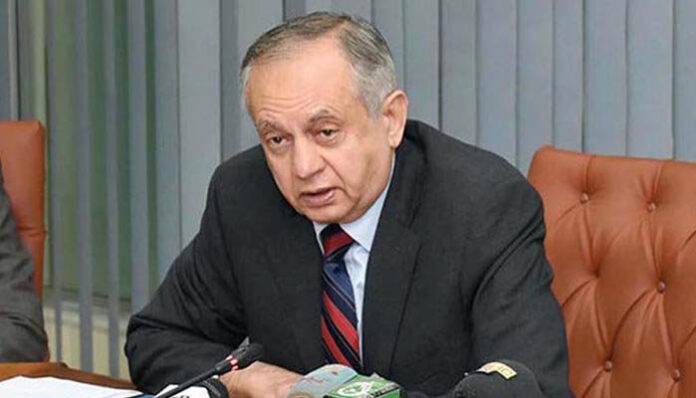ISLAMABAD: The Adviser to the Prime Minister on Commerce and Investment Abdul Razak Dawood on Friday said that the government will diligently pursue the ‘Make in Pakistan’ policy and work towards rapid industrialization aimed at enhancing exports and substituting imports.
This adviser to the prime minister was addressing a meeting with a delegation of chambers of commerce and industry at the Ministry of Commerce (MoC), said a press release issued by the MoC. The meeting was attended by representatives of Islamabad, Rawalpindi, Lahore, Gujranwala, Faisalabad, Gujrat, Multan and Mirpur chambers of commerce.
While addressing the delegation Razak Dawood said that tariffs need to be rationalised in order to achieve the objectives of ‘Make in Pakistan’ policy.
He added that in order to combat the Covid-19 pandemic some sectors have not been considered for tariff rationalisation while some important sectors have been given benefits.
He further reiterated that the anomalies arising out of the budget have been addressed to a large extent while the remaining anomalies will be resolved in consultation with the stakeholders.
The adviser to the prime minister further said that the government is following a three year plan according to which it will gradually remove duties and tariffs, particularly on raw materials, for the benefit of the industry.
He added that the government will have a special focus towards the engineering sector in order to boost exports of power equipment sector, auto sector, home appliances, mobile phones, sanitary ceramics ware, utensils, cutlery, pumps and motors.
Razak Dawood assured that the government has taken important policy decisions in this regard and exports of the engineering sector will improve in FY21.
Discussing different opportunities for production of value-added products and their export, the adviser to the prime minister underlined the importance of investing in certifications and laboratories, particularly for exploiting potential in the food processing sector.
The adviser also informed that the MoC is working to resolve issues of the exporters on priority with a particular focus on export of Personal Protective Equipment (PPE).
He reassured that exports of hand sanitisers, disposable gowns and gloves, face shields, biohazard bags, goggles and shoe covers, made from various classes of materials, including woven and non-woven chlorinated polyethylene, polypropylene, spunbond and melt blown is allowed. However, export of N-95 masks, surgical masks and tyvek suits is still on hold.
Earlier on June 26, Abdul Razak Dawood had said that Pakistan will be rapidly diversifying its exports into high quality and globally competitive engineering and pharmaceutical products while reducing its dependence on five traditional export sectors.
The adviser to the prime minister also announced that Dawlance is set to export microwave ovens from Pakistan for the first time in the country’s history.




